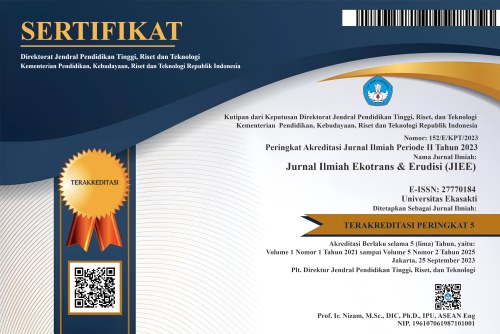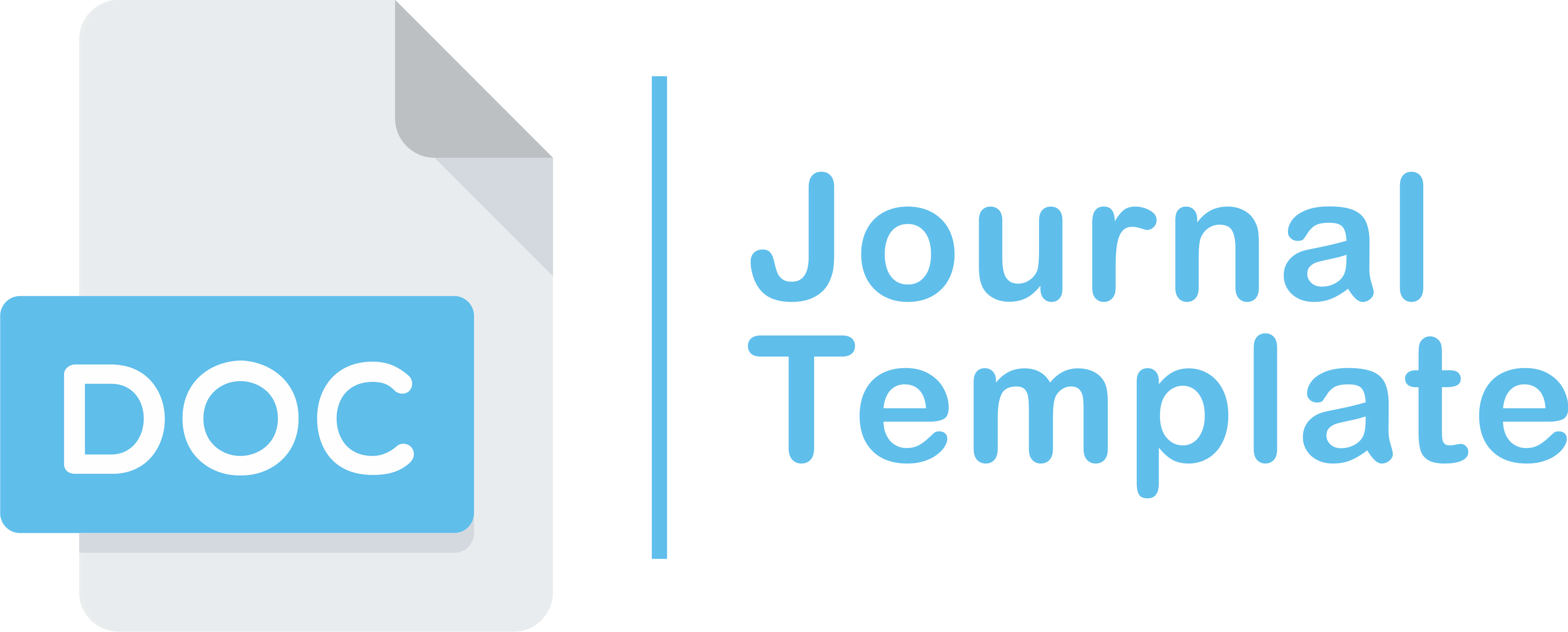Legal Review of The Legality of Authentic Deeds and Private Deeds According to Law No. 2 of 2014 Concerning the Position of Notary in Land and Building Lease Agreements
DOI:
https://doi.org/10.69989/g59d7z47Kata Kunci:
Authentic Deed, Private Deed, Lease Agreement, Evidentiary Power, Notary, Legal CertaintyAbstrak
This study analyzes the legality and evidentiary weight of authentic and private deeds in land and building lease contracts under Indonesia’s Law No. 2 of 2014 on the Notary’s Position. In civil practice, authentic deeds executed by or before a notary have conclusive probative force and afford more substantial legal certainty. Private deeds, made without the authorization of authorized officials, are weaker, especially when disputes arise. Using a normative legal method, statutory analysis, and illustrative cases, the research draws on primary, secondary, and tertiary sources, including the Civil Code, related regulations, and notarial scholarship. It asks: (1) What is the evidentiary power of private versus authentic deeds in lease disputes? (2) What legal consequences flow to the parties when a lease is drafted as a private deed rather than an authentic deed? Authentic deeds better secure certainty, narrow the room for conflict, and provide more effective protection. Private deeds are more flexible and easier to create but carry a higher litigation risk, particularly if a party denies consent. The study recommends using authentic deeds for leases and urges clearer policies on recognizing and proving private deeds to enhance public understanding and transparency.
Unduhan
Referensi
Al-Fadhat, F. (2022). Big Business Capital Expansion and the Shift of Indonesia’s Global Economic Policy Outlook. East Asia, 39(4), 389–406. https://doi.org/10.1007/s12140-022-09384-3
Anrova, Y., Suparman, E., & Kusmayanti, H. (2021). Proof Power of Authentic Deed Transfer of Land Rights in Legal Perspective of Civil Procedures. Jurnal Hukum Novelty, 12(2), 237–247. https://doi.org/10.26555/novelty.v12i2.a18604
Berlian, H., Nugroho, H., Prayitno, K. P., & Heradhyaksa, B. (2025). The Role of Military and Public Prosecutors in Joinder of Parties to Enhance Law Enforcement in Indonesia. Jurnal IUS Kajian Hukum Dan Keadilan, 13(1), 128–152. https://doi.org/10.29303/IUS.V13I1.1579
Haj Chhadeh, R., Chehab, G., & Abdul-Malak, M.-A. (2023). Avoiding Disputes in PPP Road Contracts: Quantifying Impacts of Increased Allowable Truck Loads. Journal of Legal Affairs and Dispute Resolution in Engineering and Construction, 15(2). https://doi.org/10.1061/JLADAH.LADR-911
Hendrawan, D., & Putra, P. K. (2025). Legal Aspects of Consumer Protection Regarding Credit Agreements Made Privately in Making Online Loans. Quality - Access to Success, 26(204), 217–222. https://doi.org/10.47750/QAS/26.204.23
Kurniawan, F., Nugraha, X., Noventri, A. C., & Maajid, Q. N. (2021). Auction Winner as a New Criteria in The Concept of Good Faith Buyer in Indonesia. Jambe Law Journal, 4(2), 171–199. https://doi.org/10.22437/jlj.4.2.171-190
Lin, H., & Chu, T. (2019). The reflection on the enforcement of public culture law in china: Centered on the security legislation of public cultural service and the public library law. Journal of Library Science in China, 45(4), 12–28. https://doi.org/10.13530/j.cnki.jlis.190028
Mashdurohatun, A., Waruwu, I. M., Saktiawan, M. D., & El-Sonbaty, A. A. A. (2024). Regulatory Model for the Cancellation of Authentic Notarial Deeds Based on Principles of Justice. Journal of Human Rights, Culture and Legal System, 4(3), 765–802. https://doi.org/10.53955/jhcls.v4i3.407
Mbikayi, K. (2008). Upholding the principles of good faith and fair dealing in the preliminary draft Ohada uniform act on contract law. Uniform Law Review, 13(1–2), 223–228. https://doi.org/10.1093/ulr/13.1-2.223
Pangestu, K., Suyanto, H., & Agustanti, R. D. (2021). Application of Circumstantial Evidence in Criminal Laws in Indonesia. Jurnal Hukum Novelty, 12(1), 54–66. https://doi.org/10.26555/novelty.v12i01.a16996
Pogosyan, E. V. (2022). Concept and special features of proving in notarial activities. Vestnik Sankt-Peterburgskogo Universiteta. Pravo, 13(1), 125–141. https://doi.org/10.21638/spbu14.2022.107
Rahayu, T. (2023). Legal Interpretation of Terms, Phrases, and Clauses in the Notarial Deeds. Jurnal Hukum Novelty, 14(2), 304–316. https://doi.org/10.26555/novelty.v14i2.a25751
Tau, L. J., Ogunbayo, B. F., & Aigbavboa, C. O. (2024). Inhibiting Factors to the Implementation of Preferential Procurement Policy in the South African Construction Industry. Buildings, 14(8). https://doi.org/10.3390/buildings14082392
Victoria, B. (2022). Reasonableness Of Notarial Acts as A Component of Ensuring Standards of Latin Notaries: The Experience of Ukraine. Access to Justice in Eastern Europe, 5(1), 178–192. https://doi.org/10.33327/AJEE-18-5.1-n000095
Wijayanti, T., Muryanto, Y. T., & Darori, M. I. (2021). Comparation of The Transfer of Land Rights to The Description Deed of Inheritance Rights. Law Reform: Jurnal Pembaharuan Hukum, 17(1), 121–134. https://doi.org/10.14710/lr.v17i1.37558
Unduhan
Diterbitkan
Terbitan
Bagian
Lisensi
Hak Cipta (c) 2025 Puti Annisa Erwan, Helfira Citra (Author)

Artikel ini berlisensiCreative Commons Attribution-ShareAlike 4.0 International License.
Copyright Notice
An author who publishes in the journal "Jurnal Ilmiah Ekotrans & Erudisi" agrees to the following terms:
Author retains the copyright and grants the journal the right of first publication of the work simultaneously licensed under the Creative Commons Attribution-ShareAlike 4.0 License that allows others to share the work with an acknowledgement of the work's authorship and initial publication in this journal
Author is able to enter into separate, additional contractual arrangements for the non-exclusive distribution of the journal's published version of the work (e.g., post it to an institutional repository or publish it in a book) with the acknowledgement of its initial publication in this journal.
Author is permitted and encouraged to post his/her work online (e.g., in institutional repositories or on their website) prior to and during the submission process, as it can lead to productive exchanges, as well as earlier and greater citation of the published work (See The Effect of Open Access).
All materials in this site are protected by the law. It is prohibited to quote a part of or all of this website contents for commercial purposes without the permission or consent of the editors.
If anyone finds one article or more in this journal violate or potentially violate one’s copyrights, please report to us through e-mail of Principle Contact.
Legal-formal aspects of accessing any information and manuscript in this journal website refer to the provision of license Creative Commons Attribution-Share Alike (CC BY-SA). Read more about the Creative Commons Attribution-ShareAlike 4.0 Licence here: https://creativecommons.org/licenses/by-sa/4.0/.
All information available in 'Jurnal Ilmiah Ekotrans & Erudisi' is academic in nature. 'Jurnal Ilmiah Ekotrans & Erudisi' is not responsible for loss due to the abuse of information in the website.
Information
Notice about change in the copyright policy of the journal 'Jurnal Ilmiah Ekotrans & Erudisi' : "From Volume 1, Nomor 1 onwards the copyright of the article published in the journal 'Jurnal Ilmiah Ekotrans & Erudisi' will be retained by the author"
Privacy Statement
The names and email addresses entered in this journal site will be used exclusively for the stated purposes of this journal and will not be made available for any other purpose or to any other party.



























